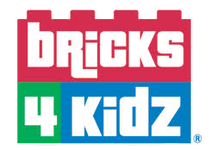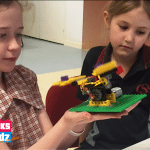New Study Finds Bricks4Kidz® Students Grow on Science and Math Skills
Scientific Research Proven by Dr Bryan Shelley of Advanced Educational Measurement
The importance of math and science education grows with each passing year. The United States Department of Commerce finds that S.T.E.M. (Science, Technology, Engineering, or Math) degrees make college graduates more employable and have more successful careers. Throughout the world, parents and educators recognize that children must start to learn these skills as early in their educational careers as possible.
Bricks 4 Kidz® offers a unique approach to building S.T.E.M. skills. The company uses LEGO® and custom lesson plans to teach S.T.E.M. skills to children ages 3-13 in over 400 worldwide locations. Bricks 4 Kidz® offers programs as short as an hour and as intensive as a week-long summer camp, in the school setting and outside of school, with S.T.E.M.-focused lessons and activities.
To better understand the relationship between Bricks for Kidz® programs and growth in math and science skills, the company contracted with Advanced Education Measurement (AEM) to perform the first-ever national study of program effectiveness. AEM administered a pretest/posttest design that measured student ability in targeted math and science skills for two Bricks 4 Kidz® programs to 702 students nationwide in grades K-5. AEM first distributed its full results through a white paper available upon request. This report summarizes the white paper’s major finding.
The main finding from AEM’s study was that Bricks 4 Kidz® students of all ages demonstrated growth in targeted math and science skills. Participation in Bricks 4 Kidz® In-School Workshops and 6-week After-School Enrichment programs was associated with increased scores on test items that measured student understanding of key Bricks 4 Kidz® curriculum points.
Growth on Targeted Skills
To measure growth, social scientists often employ a pretest/posttest design. Students take a test at the beginning of a course of study, receive instruction, then take the same test after the instruction has completed. Researchers expect that if students have increased their knowledge on targeted material, they will score better on the posttest.
AEM designed a pretest/posttest design for five groups. For Bricks 4 Kidz® one-hour In-School Workshops, AEM designed a test for students ages 6, 8, and 10. For Bricks 4 Kidz® 6-week After-School programs, AEM designed a test for students grades K-2 and 3-5. If Bricks 4 Kidz® increased understanding of targeted math and science skills, one would expect to see students score better on the posttest than the pretest.
That is exactly what happened in AEM’s study of Bricks 4 Kidz®. Figure 1 shows that students in all five groups scored better on the posttest, a result consistent with the hypothesis that B4K programs increase student math and science ability. Improvement for students in After-School programs ranged from a 6.7 percent increase for Grades 3-5 to a 10.7 percent increase for Grades K-2. The improvement for students in Bricks 4 Kidz® In-School Workshops is even more pronounced. Age 6 workshops students improved 11.3 percent on the posttest, Age 8 improved 37.0 percent, and Age 10 improved 44.0 percent. For the entire study, the average child improved 24.4 percent on the posttest, the equivalent of two and a half letter grades on an in-school test.
Conclusion
The results from AEM’s study show that participation in Bricks 4 Kidz® programs was associated with improvement in math and science skills. Students demonstrated greater understanding of age-appropriate curriculum at the end of their Bricks 4 Kidz® unit. Parents considering Bricks 4 Kidz® should know that their children are likely to demonstrate greater math and science mastery at the completion of the program.
About AEM
Advanced Education Measurement uses cutting-edge data science and statistical analysis to help educators, policymakers, and their partners improve student outcomes. AEM Founder Dr. Bryan Shelly is a Princeton-educated Ph.D. who uses his 15 years of education research experience to design peerless systems of program evaluation, on-track and early warning indicators, student and community engagement, and more.





